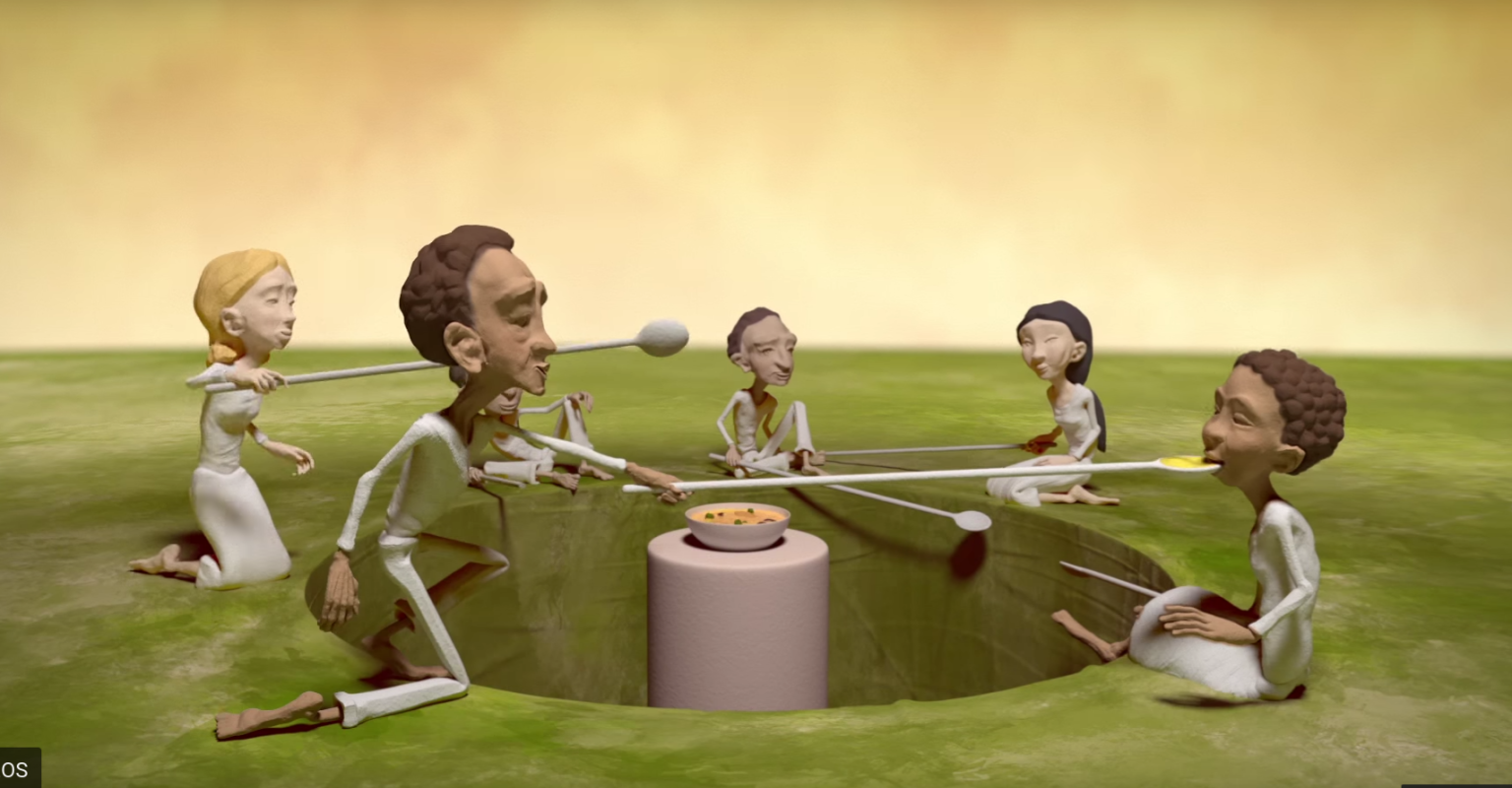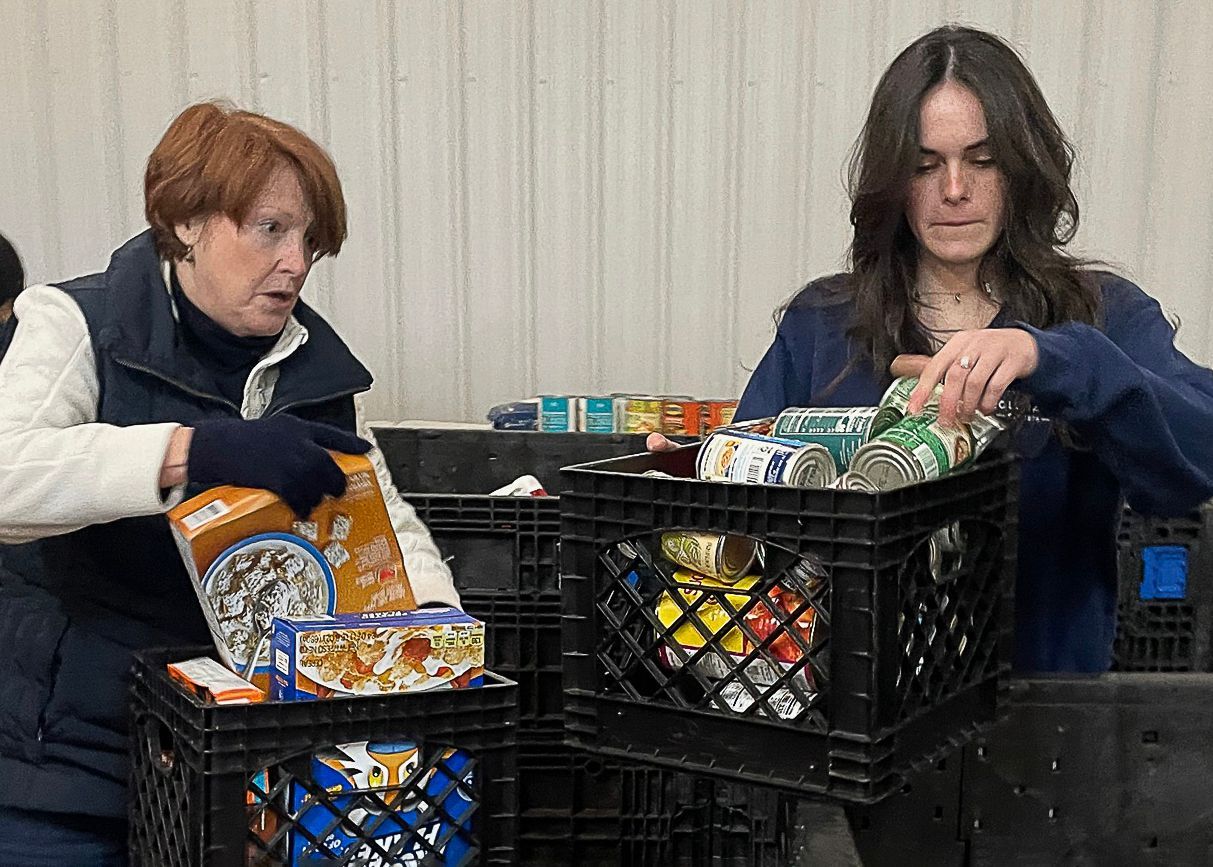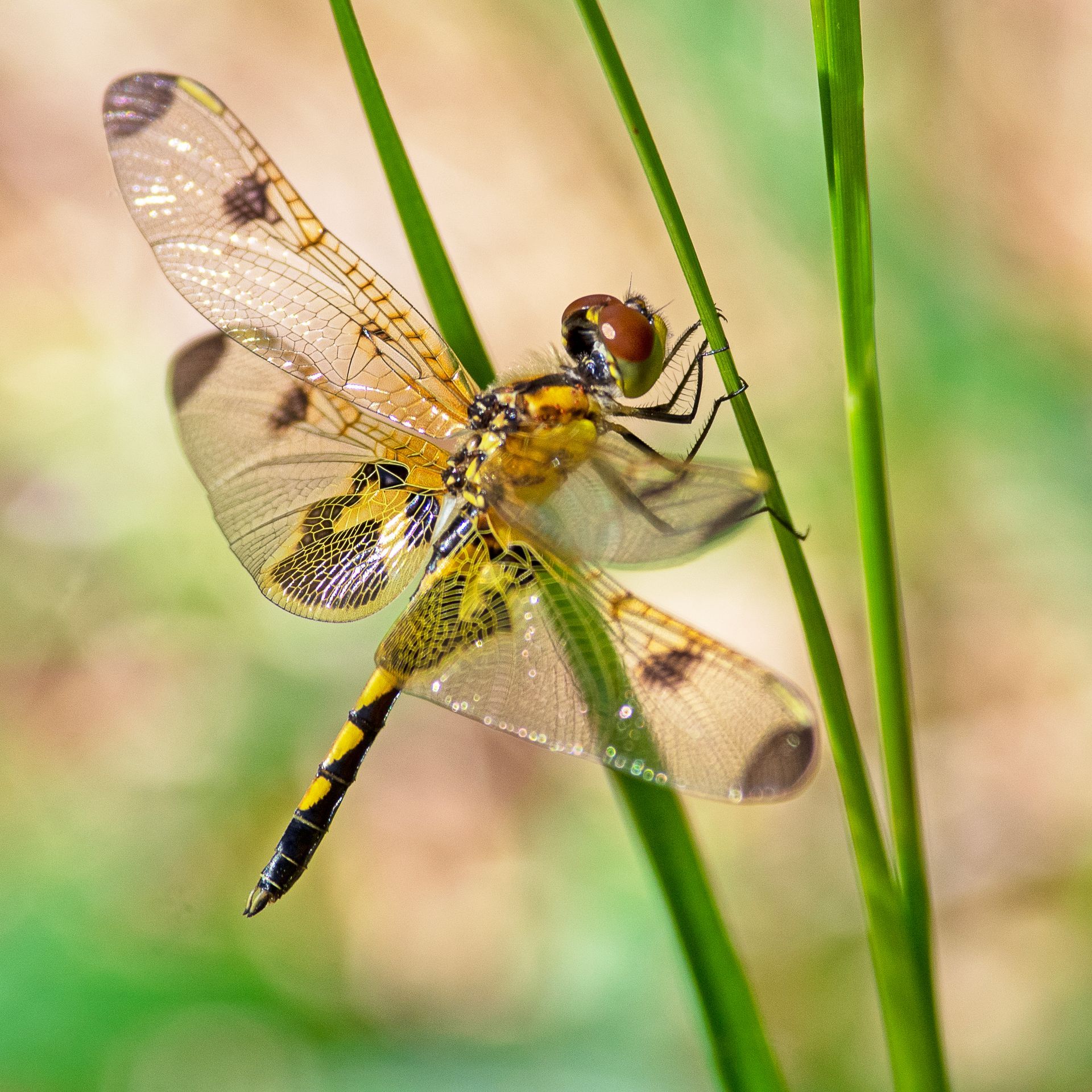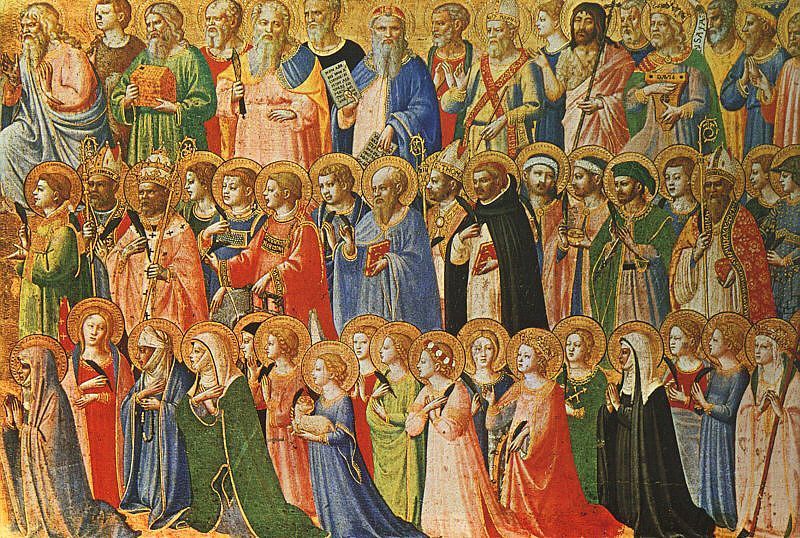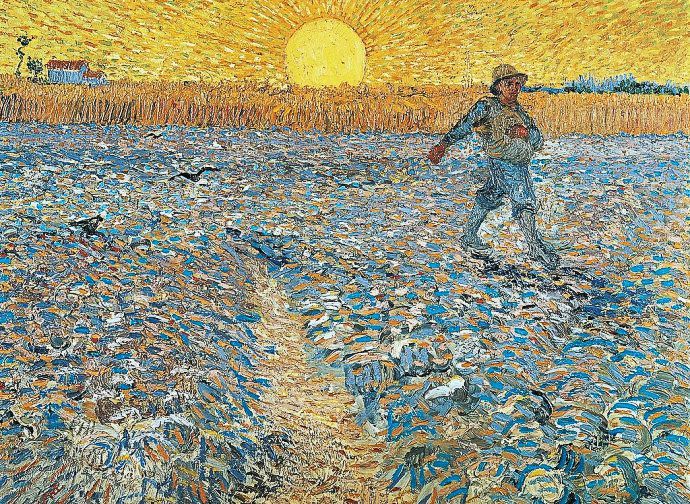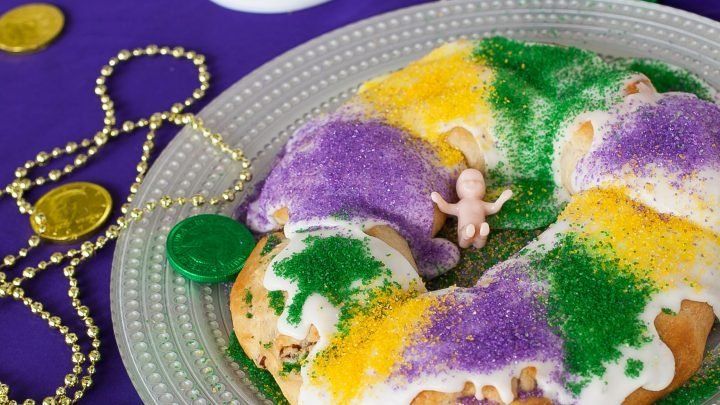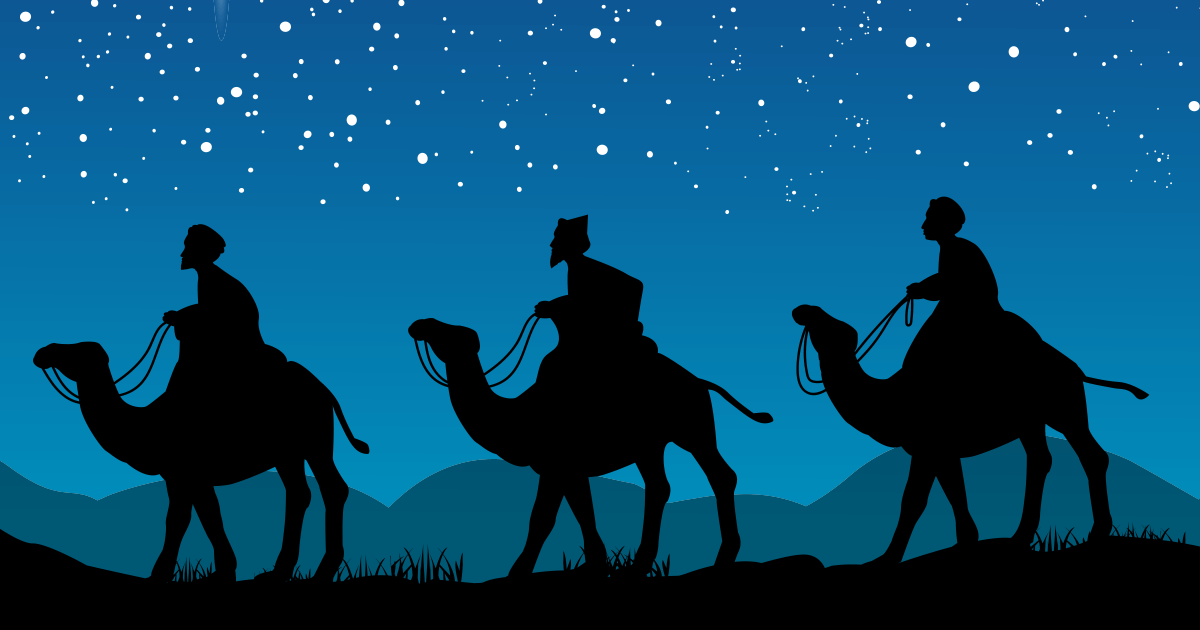The Episcopal Church
Weeds, Flowers, and Thistles
Deacon Bette's sermon for Pentecost VIII, July 23, 2023.
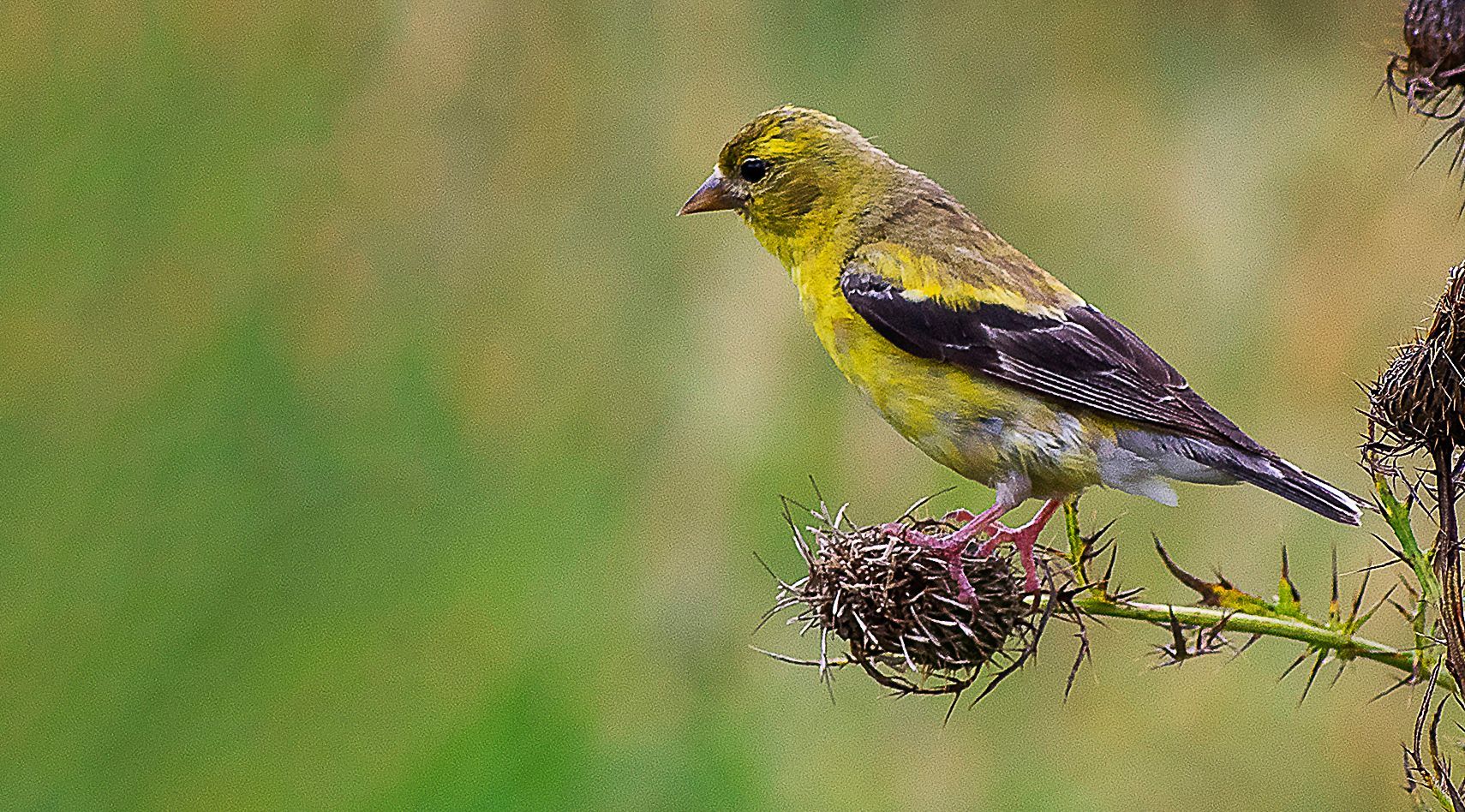
I was born and raised on a small farm in Iowa. There were plenty of things we didn’t have much of—money, for example. But one thing of great beauty we had plenty of on that farm was the Iowa state bird, namely the American goldfinch.
And why did we have plenty of goldfinches? Because we had plenty of their favorite food: Thistles! Goldfinches love thistle seed.
Now I had a rather love-hate relationship with those thistles. On the one hand, they attracted goldfinches. And butterflies! Butterflies love the nectar of thistle flowers. So the thistles drew beauty to the farm.
At the same time, thistles are a weed. They pop up early in the spring and grow fast. They were definitely a problem in the vegetable garden and in the fields where corn and oats were supposed to grow.
So… my siblings and I had a job. Day after day in the spring and early summer, we were sent out with gloves and a long-handled tool with a straight 6-in blade on the end of it to “stick thistles.” That is, you stab the blade into the ground around the base of the thistle in order to cut the tap root several inches below ground. This didn’t actually kill the thistle; it just delayed its re-growth long enough for the crops to get ahead of it.
But, thankfully, we never succeeded in sticking ALL of the thistles. We still had plenty in fence rows and non-cultivated areas to draw plenty of butterflies and, when they grew to maturity and went to seed, to feed plenty of goldfinches.
Well, here we are talking about thistles again! In case you weren’t here last Sunday, thistles were featured in last week’s sermon as well. And in that sermon they were cast in rather bad light. Our subject was the parable of the sower and I suggested that we each have a patch of thistles in our heart that is a lot like the thorny ground in that parable, the ground where nothing good can grow because it is crowded out by the thistles of pride, greed, arrogance, and all the bad stuff that keeps the love of God from flourishing in our hearts.
It was a pretty dim picture of thistles. It was also pretty cut and dried: fertile ground "good," thistle patch "bad." And that’s how that parable reads: The sower sows, the seeds fall on good soil and bring forth much fruit, or they fall on bad soil, rocky soil, thorny soil, and produce nothing.
So several of us had a really interesting discussion over coffee and donuts last Sunday between services. Where do the weeds come from? Especially after we have vigilantly expended time and sweat pulling every weed we can find, how do they get back into the yard and the flower beds? And do we pull them or not, especially if we are possibly going to damage a plant we want to keep by doing so?
About that there was some disagreement! I mentioned today’s parable in favor of leaving the weeds alone. Others at the table said, ‘Pull ‘em, along with the good stuff if necessary!’ It was a totally friendly disagreement.
So here we are today with what we might call the parable of the weeds, and Jesus himself makes a mess out of clarity. Don’t pull the weeds, he says, let them be. The angels will do the dirty work later on. What is up with that?
You know what I don’t understand? Why my siblings and I never thought of using that on my father! I mean, we went to Sunday School every Sunday and to Bible School for at least two weeks every summer. We knew the stories! And we never once thought of using that story on our father to get out of sticking all those thistles.
Maybe we sensed it would not have worked. Because here’s the thing: The Bible also teaches us to strive for the good, to work at being righteous, to cultivate a relationship with God so that we, too, can grow in love and charity and holiness, and spread those seeds in the world, not to earn God’s love but because that is the only possible response to being God’s beloved. Striving to be better is what we do. We will keep driving the weeds out of our yards and our hearts, and they will keep coming back.
See, life is messy. Things are not always what they appear to be on first glance. “Good” and “bad” are rarely as clear and cut and dried as we would like. I love this little poem by Ian Emberson. Perhaps you’ve heard only the first line…
A weed is a flower in the wrong place,
a flower is a weed in the right place,
if you were a weed in the right place
you would be a flower;
but seeing as you’re a weed in the wrong place
you’re only a weed –
it's high time someone pulled you out.
Seems the poet was not in the best of humor when he wrote that!
Friends, I am not in the weed-pulling business this morning. I did my share of that when I was a kid. Moreover, if I have learned anything in my 70+ years, it is that life is messy. That weeds are beautiful and that flowers can stick you with their thorns.
But the messiness of life, the sometimes lack of clarity between good and evil, does not relieve us of the call to build the kingdom of God hear and now and to do it with joy and gusto. I hope it teaches us to do it with a good measure of humility, because our knowing, our understanding, is so often contingent and near-sighted.
A Dean I worked for many years ago at Penn State had a memorable way to make a point. When he wanted us to be more daring in trying things new, he’d say, “You can’t live life as if you’re about to be hit by a bus.” But I would add, you also can’t go around stepping off of curbs without looking right and left because a bus just might be barreling down the street toward you!
Here's what I want us to take away today: When we find the Bible lining up behind our own, each of our own, biases and prejudices, judging harshly the people we love to judge harshly, reinforcing the worldly values we hold dearest… that is when we most need to check ourselves and our reading of the Bible. That’s when we need to talk to others, especially others who are as different from us as possible who read the Bible and see the world from very different pespectives.
When we think we know the Truth with a capital T, when we see right and wrong with utmost clarity, when good vs. evil are cut and dried, when we have the strongest urge to lay waste to all those weeds messing up our lives… that’s when we most need to take a step back.. and bow our heads. We need to bow our heads in humble recognition of the limitedness of human understanding. We need to bow our heads in reverence before the Wisdom that holds together all of life's messiness.
BTW, here in Louisiana, I eagerly await the annual visit of the goldfinches to my backyard, as they pause for a week or two on their journey back to Iowa for the summer. And how do I attract them to my backyard? NOT by planting thistles, but by going to Lowe’s and stocking up on thistle seed for the special thistle seed feeder, of course! But the fact that I can do that—go to Lowe’s and buy thistle seed by the 15-lb. bag—means that someone, somewhere is farming thistles. Someone somewhere is planting thistles on purpose and harvesting their seed. Let that sink in for a moment.
In the name of God, Father, Son and Holy Spirit, AMEN
This sermon was preached at Grace Episcopal Church, Monroe, LA. Both of the photographs with this sermon were made by me. The title photo is a pair of American Goldfinches in breeding plumage feeding on thistle seeds in my back yard in Swartz, LA, 2/18/2022. The second photo is an American Goldfinch in winter plumage feeding on a spent thistle flower along a roadside in rural Iowa, 9/19/2018, when I was home for a class reunion.



